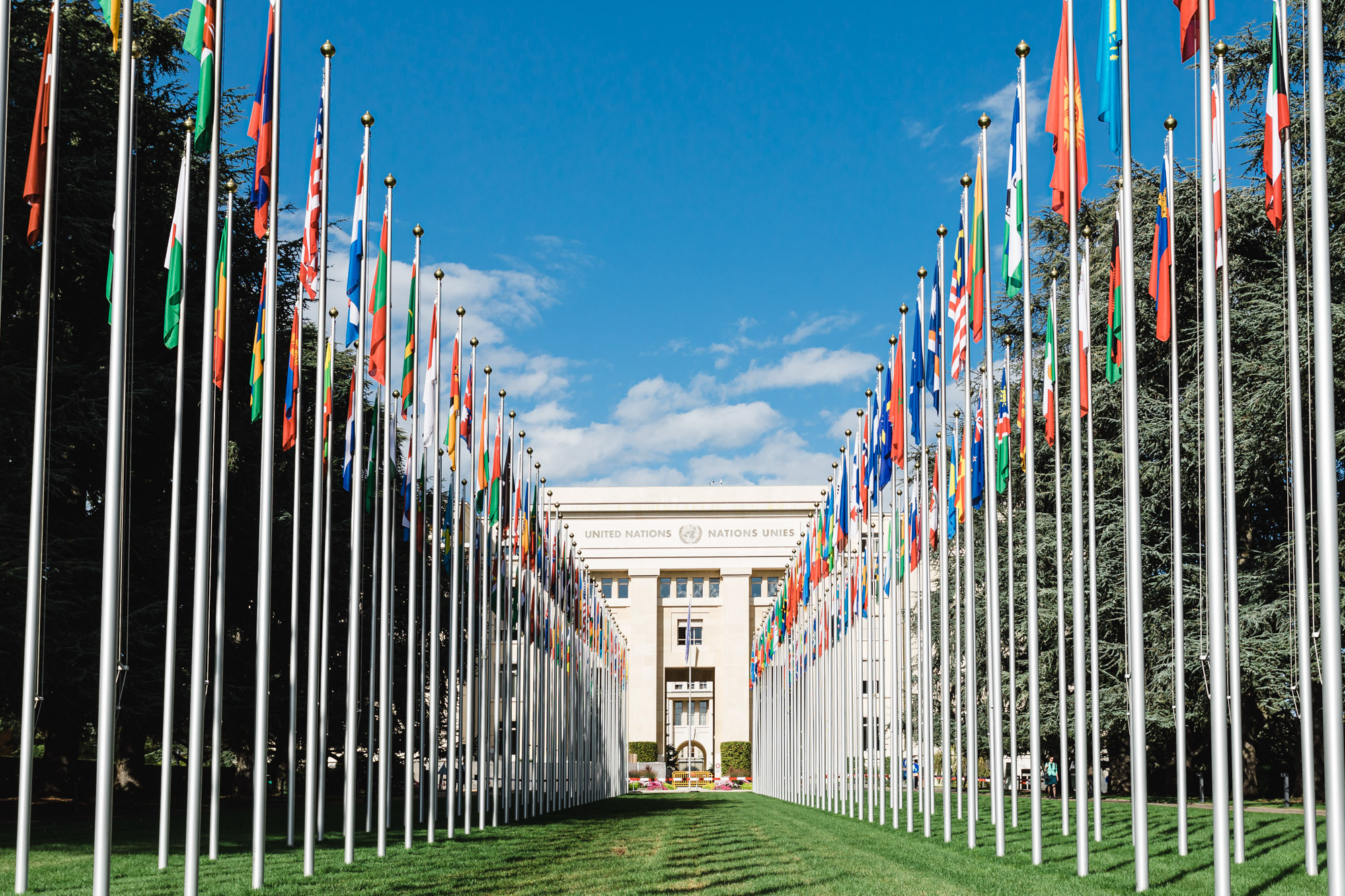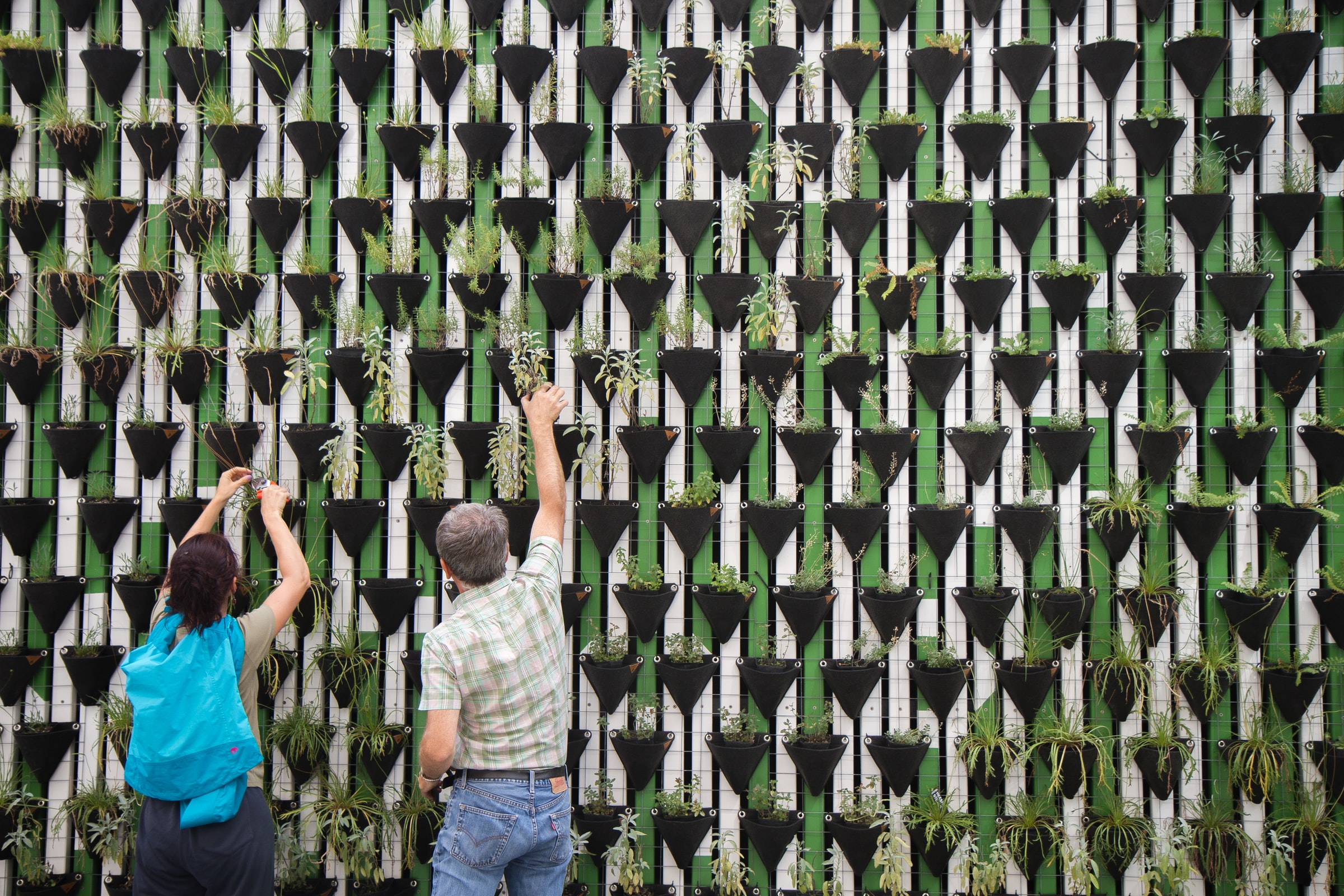The business case for circular buildings. What role does transport play in countries’ climate plans? Leadership for net zero. The future of the UNFCCC: How can the international climate process be more effective? Media, myths and the reality of climate migration. Charting the course for cleaner air. Hydrogen: completing the regulatory puzzle. Financing nature-based solutions by G20. Discover these and more online events of the week!
Subscribe to Climate Online’s newsletter to be reminded about weekly event updates by e-mail:

Biodiversity & Environment
26 January, 14:00 – 15:00 CET
“Human Rights and the Environment: Evolving practice in Africa” by United Nations Environment Programme – UNEP, African Civicus Monitor and World Resources Institute – WRI
This webinar will explore and share a new report from the Access Initiative Africa which explore feasibility and pathways and options for development of an approach to improve the implementation of environmental rights in Africa including the development of a similar African regional agreement looking at the possible entry points focus and enabling conditions that are needed. The webinar hopes to raise attention and engagement across the African Continent to discuss the possibility of a broad engaged stakeholder process to discuss the potential of development of a road map to implement and strengthen environmental rights in Africa considering national and regional approaches.
26 – 28 January
“Healthy Oceans Tech and Finance Forum: Innovative Solutions for Asia and the Pacific” by Asian Development Bank – ADB
The event aims to promote and share innovative technologies, good practices, case studies, and practical solutions to protect and enhance the health and resilience of ocean ecosystems and coastal communities in the region. The three-day forum will cover 4 thematic tracks: (1) Plastic-free Oceans, (2) Coastal Resilience, (3) Ocean Finance, and (4) Blue Foods. The program will include talks by ocean champions, seaside conversations with ADB management, and special spotlight sessions. Deep dives under each thematic track will feature ocean science, innovations, and technologies along with traditional and proven approaches and solutions (including low-technology and indigenous knowledge) that have potential for scale-up.
27 January, 15:00 – 16:00 CET
“G20: Financing Nature-based Solutions” by Geneva Environment Network and UNEP Climate Finance Unit
A new analysis, ‘The State of Finance for Nature in the G20’ builds on the global report State of Finance for Nature – Tripling Investments in Nature-based Solutions by 2030 released in 2021, which calls for closing a USD 4.1 trillion financing gap in nature-based solutions. The report represents the need of a worldwide effort to catalyse private and public capital for nature-based solutions to meet targets set by the Rio Conventions and the Sustainable Development Goals to address the biodiversity, land degradation, and climate crises. This session aims to present the findings of the State of Finance for Nature in the G20 while hosting a discussion about the importance of closing that 4.1 trillion gap and the recommendations in the report to make it possible.
27 January, 20:00 – 21:00 CET
“Online Adventure: A Virtual Safari in Botswana” by WWF
Join us for an armchair travel experience to Botswana! Expert guides will take us on a virtual safari into the wilderness and interpret the behaviors and hunting techniques of some of Africa’s most iconic wildlife, including elephants, lions, wild dogs, and hippos. You’ll also learn about the Kavango Zambezi Transfrontier Conservation Area (KAZA), the world’s largest transboundary conservation area, and how WWF is working there with local communities to protect wildlife, promote tourism, and create income-generating opportunities using natural resources.

Climate Science & Policy
24 January, 14:00 – 15:00 CET
“The COP presidency year” by Chatham House
At this special event, Alok Sharma reflects on the success of the Glasgow summit and set out the UK’s priorities for the rest of its presidency. (1) What is the UK presidency’s ambition for agreeing further revisions to NDCs in the coming year and how will it support this? (2) What does the presidency hope to see achieved on public and private climate finance, and greening the global financial system in 2022? (3) How does the UK presidency plan to deliver for climate vulnerable countries, ensuring that countries honour their commitments on adaptation and loss and damage? (4) What does the UK hope to see achieved on the road to COP27 and how will it work with Egypt to build the necessary momentum to achieve this?
24 January, 15:00 – 16:00 CET
“The Future of the UNFCCC: How Can the International Climate Process Be More Effective?” by World Resources Institute – WRI
Join for an engaging webinar on how to make the UN climate process more effective in the years ahead. Panelists will surface what works well and what challenges have stymied progress. The event will cover everything from making the institutional design of the UNFCCC fit for purpose, reflecting on the experiences from the last 30 years, evaluating the role of the secretariat, and strengthening accountability.
25 January, 10:30 – 15:00 CET
“At what price? The role of the EU’s Emissions Trading System in combating the climate crisis” by Carbon Market Watch
On 14 July, the European Commission launched the Fit-for-55 package, a large set of legislative proposals to revise the EU 2030 climate and energy framework. Key elements of the package are the revision and scaling up of the Emissions Trading System (ETS) to cover a broader array of sectors, introducing a Carbon Border Adjustment Mechanism (CBAM), and the creation of a Social Climate Fund among other proposals. With the Fit-for-55 package, the European Commission aims to achieve a 55% reduction in greenhouse gas emissions by 2030, and net-zero emissions by 2050. But is the package ambitious enough to achieve this goal? Join for a lively debate with panelists from different sectors, including trade unions, academia, private sector and civil society organisations.
25 January, 16:00 – 17:30 CET
“Designing a Meaningful Global Stocktake (GST)” by Center for Climate and Energy Solutions – C2ES
A lynchpin of enhanced ambition under the Paris Agreement, the Global Stocktake (GST) is the first official checkpoint to assess Parties’ collective progress towards achieving the purpose of the Agreement and its long-term goals. Translating the GST into increased ambition will mark a critical test for Paris Agreement’s effectiveness. C2ES is working closely with the Environmental Defense Fund to examine the GST process to offer insights on how the GST can deliver meaningful outcomes and recommendations to improve the process. This webinar will spotlight the first of a series of papers on the Global Stocktake, exploring how the UNFCCC can address emerging gaps and challenges on equity and implementation, as well as to deliver a path for increased ambition.
26 January, 15:00 – 16:00 or 20:00 – 21:00 CET
“Training on Climate Data Tools with Climate Watch” by World Resources Institute – WRI
Climate Watch is a free online platform designed to empower policymakers, advocates, researchers, media and other stakeholders with the open climate data, visualizations and resources they need to gather insights on national and global progress on climate change. Join for an interactive training to learn how to use Climate Watch to gain insights on countries’ climate commitments, generate custom visuals and access raw data for further analysis. The training will be offered at two different times slots to accommodate attendees from all geographies.
26 January, 16:00 – 17:00 CET
“Article 6 of the Paris Agreement & the Voluntary Carbon Market” by International Carbon Reduction & Offset Alliance – ICROA
In November 2021 the Parties to the Paris Agreement reached decisions on Article 6 that may impact the voluntary carbon market (VCM). In setting Article 6 rules, the Parties defined what is required within Nationally Determined Contributions and for related cooperative market mechanisms. They did not define what is excluded or not permitted. In connection with the Article 6 Analysis published in December 2021, ICROA will hold a webinar to summarise key implications of the new Article 6 Rulebook for the Voluntary Carbon Market and answer any questions.
27 January, 14:30 – 16:30 CET
“Just Transition Governance and Financing across EU Member States” by European Roundtable on Climate Change and Sustainable Transition – ERCST
(1) What is the EU already doing on Just Transition? Taking stock of the measures in place: mechanisms, funds, fiscal reforms. (2) What is the Just Transition governance and financing structure at Member State level? (3) Who is in charge of the preparation of the national and territorial just transition plans (TJTP) and what is their state? (4) What is working and what is not in the EU Just Transition governance?
27 January, 16:00 – 17:30 CET
“Foreign Policy in the Age of Climate Change – Debating Green Foreign Policy” by Heinrich Böll Foundation
What is Germany’s climate policy approach for those regions most affected by climate change? Which countries and which regions should Germany and the EU prioritize in its climate partnerships and alliances? What can be achieved through climate partnerships – and what are the limits of these cooperation projects? Which state and non-state actors need to be mobilized in Germany / EU, and which actors in the target country for a successful climate partnership? How should Germany and the EU engage a key country like India in its climate diplomacy? Can and should we cooperate with China and Russia on climate policy – and how would that work?
27 January, 17:00 – 18:15 CET
“Media, Myths and the reality of Climate Migration” by University of Oxford
Scholars interested in the relationship between climate change and human migration have repeatedly noted the persistence of several problematic myths marked by simplistic assumptions about this relationship. The image conjured is of mass international migrations caused by climate change alone. In this presentation, David Durand-Delacre (University of Cambridge) will begin by reviewing these myths and why they worry so many experts on climate mobilities. While more nuanced, accurate knowledge of climate mobilities is needed and a climate mobilities agenda holds much promise, a decade of research debunking climate migration myths has been insufficient to dislodge them from the media, policymaking discussions, and wider public consciousness. The remainder of the presentation asks why, and what can be done about it, drawing on work with a wide-ranging network of stakeholders engaged in discussions about climate migration.
27 January, 18:00 – 19:00 CET
“Towards COP27: moving forwards after COP26” by University of Oxford
Attended by Heads of States, academics, activists, policy makers and journalists, COP26 was the largest COP to date, with perspectives on its merits and failures varying wildly. Now that the dust has settled, we present the key outcomes from the conference, assess how close they bring us to keeping the limit of 1.5C within reach, and explore what those decisions mean for those affected by and implementing them. Further, with COP27 on the horizon, we also ask what role COPs might take post-Glasgow, and how they might adapt to more inclusively and effectively tackle the task. Join the panel of academics who will share their thoughts after attending COP26 and look forward to what it means for COP27 and the world over the coming years.
28 January, 10:30 – 15:00 CET
“On The Way to Carbon Zero – 22nd Foreign Policy Conference” by Heinrich Böll Foundation
The aggravating climate crisis has made the implementation of the Paris Agreement a central issue in German and European foreign policy. Nevertheless, the integration of climate and foreign policy is still fraught with uncertainties, both in its geostrategic and in its operational dimension. The Conference will focus on climate partnerships, their risks and challenges, and the stakeholders that need to be involved in order to ensure the effectiveness and sustainability of these partnerships. In parallel breakout sessions we will take a closer look at the following regions: West Balkans, Ukraine, Morocco, Turkey.

Renewables & Energy Transition
24 – 28 January, 14:00 – 18:00
“Right to Energy Forum 2022 – Power to the people: delivering energy justice through community energy” by Right to Energy Coalition
To tackle climate change, we need a strong European movement demanding and creating a socially fair energy transformation for all. This Forum unites campaigns on energy democracy, energy efficiency and just transition in the context of ending energy poverty across Europe. This is a social justice issue. As climate policies must prioritise those who are left behind by our current inefficient and wasteful fossil fuel dominated energy system. We must not replicate energy inequalities in green solutions.
24 January, 14:30 – 16:00 CET
“Bioenergy in Tomorrow’s Energy System: Decentralised Solutions for a Climate Neutral Economy” by Bioenergy Europe
Join for a webinar to discover findings of a new report “Towards an Integrated Energy System” and learn about bioenergy’s role in the energy system of the future. The report reviews the current and future role of bioenergy in the EU energy system, from the perspective of employment and economic growth in Europe, as well as the economic and societal benefits of the increasing use of bioenergy within the transition towards a circular economy. The presentation of the report will be followed by a panel discussion with the industry and policy makers to debate the opportunities of the energy transition from the perspective of the bioenergy value-chain and discuss current and future legislative framework to deliver on EU climate and energy targets, and the role of bioenergy in this transition.
25 January, 14:00 – 14:30 CET
“Reaching Zero with Renewables: Capturing carbon” by International Renewable Energy Agency – IRENA
IRENA’s World Energy Transitions Outlook: 1.5°C pathway foresees that 90% of the solutions to bring us to net-zero by 2050 involve renewable energy through direct supply of renewables, electrification, energy efficiency, green hydrogen, and bioenergy combined with carbon capture and storage. Only in residual use of fossil fuels and some industrial processes, such as cement, chemicals and iron and steel, decarbonisation efforts may require CCS and CO2 removal technologies and measures. This webinar will share key takeaways from the recent IRENA report Reaching Zero With Renewables: Capturing Carbon on the status and potential of carbon capture and storage (CCS), carbon capture and utilisation (CCU) and carbon dioxide removal (CDR) technologies and their roles alongside renewables in the deep decarbonisation of energy systems in the context of global pathways to net-zero emissions.
25 January, 17:00 – 18:00 CET
“Policy Leadership Series with FERC Commissioner Allison Clements” by Resources for the Future – RFF
Join for a Policy Leadership Series event with Commissioner Allison Clements of the Federal Energy Regulatory Commission (FERC). Operating as an independent, bipartisan agency, FERC regulates the interstate transmission of electricity, natural gas, and oil, and it is responsible for ensuring reliable and affordable energy for the American public. As the United States transitions to clean energy, the agency’s commissioners will be faced with numerous decisions shaping the future of the nation’s energy system. Clements has stated that “the grave threat of climate change” will undergird her decisionmaking at FERC.
25 January, 18:00 – 19:30 CET
“The past, present and future of ground source heat pumps” by University of Oxford
Matthew Trewhella (PhD Astrophysicist, Kensa) will give an overview of how a ground source heat pump works and how they have been used in the UK. He will then discuss the cutting edge of how they are being used right now – including the shared ground array approach and the smart controls that are being demonstrated via the Energy Superhub Oxford project. He will then go on to describe Kensa’s vision for the mass decarbonisation of existing properties using the concept of “split ownership”.
26 January, 14:00 – 15:00 CET
“High energy prices and market design” by Florence School of Regulation – FSR
EU gas and electricity prices have increased rapidly over the last few months and reached unprecedented levels. While the recent energy price dynamics reflect current market conditions and have little to do with the future energy transition, they provide an opportunity to reflect on the most appropriate market design to support this transition.
26 January, 18:30 – 20:00 CET
“Electrification of the Building Sector: Constructing an Equitable Transition” by Stanford University
This webinar will highlight some of the latest research on building electrification as a critical climate solution. The conversation will feature remarks from Senator Martin Heinrich (D-NM), a leader on electrification in Congress. It will also include a panel of science and technology experts discussing options, progress, and barriers for building decarbonization. Topics include: cutting-edge energy system technologies, efficient building best-practices, reducing household appliance methane emissions, and resulting financial implications for consumers. The conversation will focus not only on the technology but also on assuring that the transition puts a priority on equity and justice.
27 January, 10:00 – 11:15 CET
“Social Innovation in Energy Transitions in Central and Eastern Europe” by ICLEI Europe, Kozminski University, City of Warsaw and SONNET Project
Join an online, half-day deep dive into social innovations in energy (SIEs) in Central and Eastern Europe. This event will connect participants with experts and practitioners from the region to discuss the role SIEs play in transforming energy systems, and the collaboration between actors involved in these processes.
27 January, 15:00 – 16:00 CET
“What role does transport play in countries’ climate plans?” by GIZ and SLOCAT Partnership
Despite the growing share of transport targets, only 8% of global transport emissions are covered by GHG and non-GHG targets in new and updated Nationally Determined Contributions (NDCs) to the Paris Agreement. This demonstrates that current targets and actions remain insufficient. Join to discover what countries are planning to enhance climate action in transport.
28 January, 10:00 – 12:00 CET
“New actors & alternatives on the heat market – Heat as a service” by Decarb City Pipes 2050
Join one of capacity building sessions that address specific issues related to the heating and cooling transition. This session will focus on heat as a service. Heating represents 50% of Europe’s final consumption and is at 75% fuelled by fossil fuels. This is thus a huge market that offers numerous perspectives in terms of decarbonisation. To achieve so, new alternatives and actors will be needed, to bring innovation and accelerate the transition. The goal of this session is to present some of these alternatives and discuss with cities the potential barriers and levers to implement such solutions.
28 January, 10:00 – 12:30 CET
“Hydrogen: completing the regulatory puzzle” by European Roundtable on Climate Change and Sustainable Transition – ERCST
(1) Has the European Commission proposed a comprehensive regulatory framework that supports the creation of a hydrogen economy in the EU? If not, what are the missing pieces? (2) What are those elements of the regulation that despite being included may act as a bottle neck or slow the pace of deployment of a hydrogen economy? (3) Are we making an excessive use of regulation vis a vis market-based instruments such as carbon pricing? (4) Is there a comprehensive definition for low carbon hydrogen that supports investments in this technological landscape? (5) Does the delegated act on RFBOs act as a bottleneck for the deployment of a hydrogen economy?

Sustainability & Circular Economy
24 January, 15:00 – 16:45 CET
“The Plastics Wrap-Trap: What about cities in inter-states negotiations?” by Geneva Cities Hub, Geneva Environment Network and UN-Habitat
The United Nations Environment Assembly (UNEA), the world’s highest-level decision-making body on the environment, enjoying universal membership of all UN member States, is taking the lead in establishing the mandate on a global plastics agreement at its next session in February-March 2022. But what is the status of local and regional governments (LRGs) within UNEA? Could it be enhanced? If so, how? And for what purpose? Do municipalities share knowledge and exchange experience about the prevention and reduction of plastic pollution? Join to discuss concrete ways and means to better include LRGs in plastic pollution-related negotiations.
25 January, 11:00 – 12:15 CET
“How can we build community wealth through food and farming?” by Sustain
Community wealth building offers an antidote to the current economic system which is destroying local economies, people and our planet. The food and farming sector has suffered at the hands of this system with supermarkets prioritising profit over fair pay for staff and farmers, lengthy supply chains limiting opportunities for local producers and healthy, sustainable food becoming the preserve of the middle classes who have larger incomes and more choice. The result: wealth leaking from local economies and communities having little influence over their local economy. Join the webinar to explore what community wealth building is and how it can be used to build resilient local food economies that capture local wealth and use it to ensure everyone is able to access healthy, local, sustainable food.
25 January, 16:00 – 17:00 CET
“Messaging that Works: Engaging Diners in Climate Action” by World Resources Institute – WRI
This event will present findings from a testing into whether environmental messaging impacts consumer choices and which two messaging frameworks stand out. While the testing was specific to menu choices, this event will showcase ways to engage consumers in climate action and the latest learnings from behavioral science’s look across sectors into what works.
25 January, 16:00 – 17:30 CET and 27 January, 10:00 – 11:30 CET
“The business case for circular buildings” by World Business Council for Sustainable Development – WBCSD
Not only is the linear model of ‘take, make, and waste’ harmful to the environment, it presents enormous lost business opportunities. But how do we make the business case for a more circular built environment? What are the drivers, the policy, investment, and market levers that can help get us there? How can these efforts further support global goals for net zero, address ecological degradation and create new economic opportunities and decent jobs? WBCSD have answered these questions in The business case for circular buildings: Exploring the economic, environmental and social value report. Join to find out more.
26 January, 7:30 – 10:15 CET
“Beyond supply chains: A look at visibility and sustainability in the Asia-Pacific region” by The Economist
The talks at COP26 identified sustainability in supply chains as a priority, bringing fresh perspectives and renewed impetus to the pursuit of supply-chain visibility. Supply chains are under increased scrutiny, and are rapidly changing under pressure from the proliferation of strategies such as China+1, nearshoring and increased regionalisation. Looking beyond supply chains, in 2021 the United Nations’ “code red” warning on the IPCC’s sixth assessment report, followed by the COP26 climate talks, helped focus business executives, investors and stakeholders on the need to improve performance related to environmental, social and governance (ESG) issues across their organisations. However, being sustainable is easier said than done, especially in trans-regional trade…
27 January, 0:00 – 1:00 CET
“A Breathtaking Challenge: Charting the Course for Cleaner Air” by Columbia University
It’s among the top five of health dangers, and it’s everywhere. Air pollution. According to global health experts, poor air quality causes premature mortality in up to nine million people every year. One third of deaths from stroke, lung cancer, and heart disease are caused by microscopic pollutants in the air that can infiltrate our respiratory and circulatory system, damaging our lungs, heart, and brain. Join for the discussion, as two of the school’s world-renowned atmospheric scientists discuss an exciting interdisciplinary project aimed to better understand this threat and help move global policies to clear the air and protect public health.
28 January, 16:30 – 17:30 CET
“Leadership for Net Zero” by University of Oxford
The Insights for Action seminar series explores how researchers and practitioners within and beyond Oxford are using research insights for action. Join us to hear conversations between researchers and practitioners who are working across disciplines, sectors, and media to understand and create more equitable and just social, economic, environmental, and health systems. In this seminar, Dr Aoife Brophy, Kaya Axelsson, and Charmian Love will discuss the leadership practices required of business and others to achieve Net Zero targets, within and between organisations.

